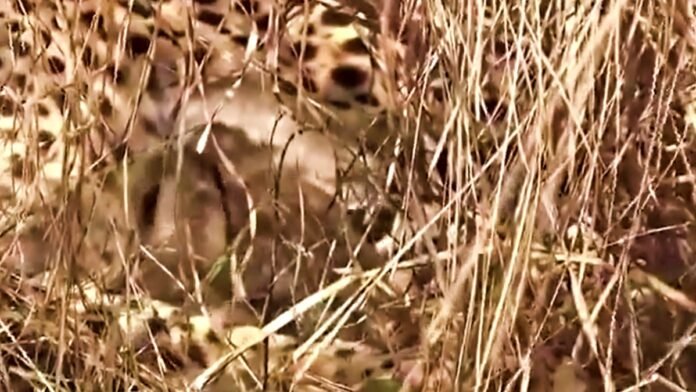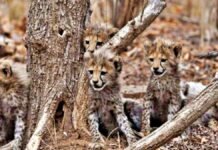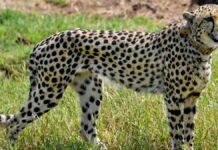
New Delhi: In a boost to the conservation efforts of the cheetah, the world’s fastest land animal, six cubs have been born in the Kuno National Park (KNP) of Madhya Pradesh in a month. The cubs belong to two female cheetahs, Jwala and Asha, who were among the 20 cheetahs translocated from Namibia and South Africa as part of the ‘Project Cheetah’ initiated by Prime Minister Narendra Modi in 2022.
Union Environment Minister Bhupendra Yadav shared the news of the latest births on his social media platform ‘X’ on Tuesday. He posted a video of Jwala and her three cubs and congratulated the wildlife warriors and lovers across the country. He also expressed his hope for India’s wildlife to prosper.
Earlier, on January 3, KNP officials had announced that Asha had given birth to three cubs, making them the first cheetah cubs to be born on Indian soil in decades. ² Asha and Jwala are part of the first batch of eight cheetahs that arrived in India from Namibia in September 2022. They were followed by another batch of 12 cheetahs from South Africa in February 2023.
The cheetahs were released into enclosures and acclimatization camps in KNP, which was chosen as the most suitable habitat for the species in India. The project aims to restore the cheetah population in India, which became extinct in the country in the 1950s due to hunting and habitat loss.
However, the project has also faced several challenges and criticisms. Seven of the imported cheetahs have died since March 2023 due to various reasons, including bacterial infections, injuries, and snake bites. Some experts have also questioned the feasibility and ethics of the project, citing the lack of an adequate prey base, poaching threats, and genetic diversity of the cheetahs.

Despite these hurdles, the project authorities have expressed optimism and confidence in the survival and adaptation of the cheetahs in India. SP Yadav, additional director general of forests in the Union environment ministry, had said that the mortality rate under Project Cheetah was within the expected limits and that the project was following the best practices and protocols of cheetah conservation.
With the addition of the six cubs, the total number of cheetahs in KNP now stands at 20, including 14 adults and six cubs. The authorities hope that the cubs will grow up healthy and contribute to the revival of the cheetah population in India.

















































